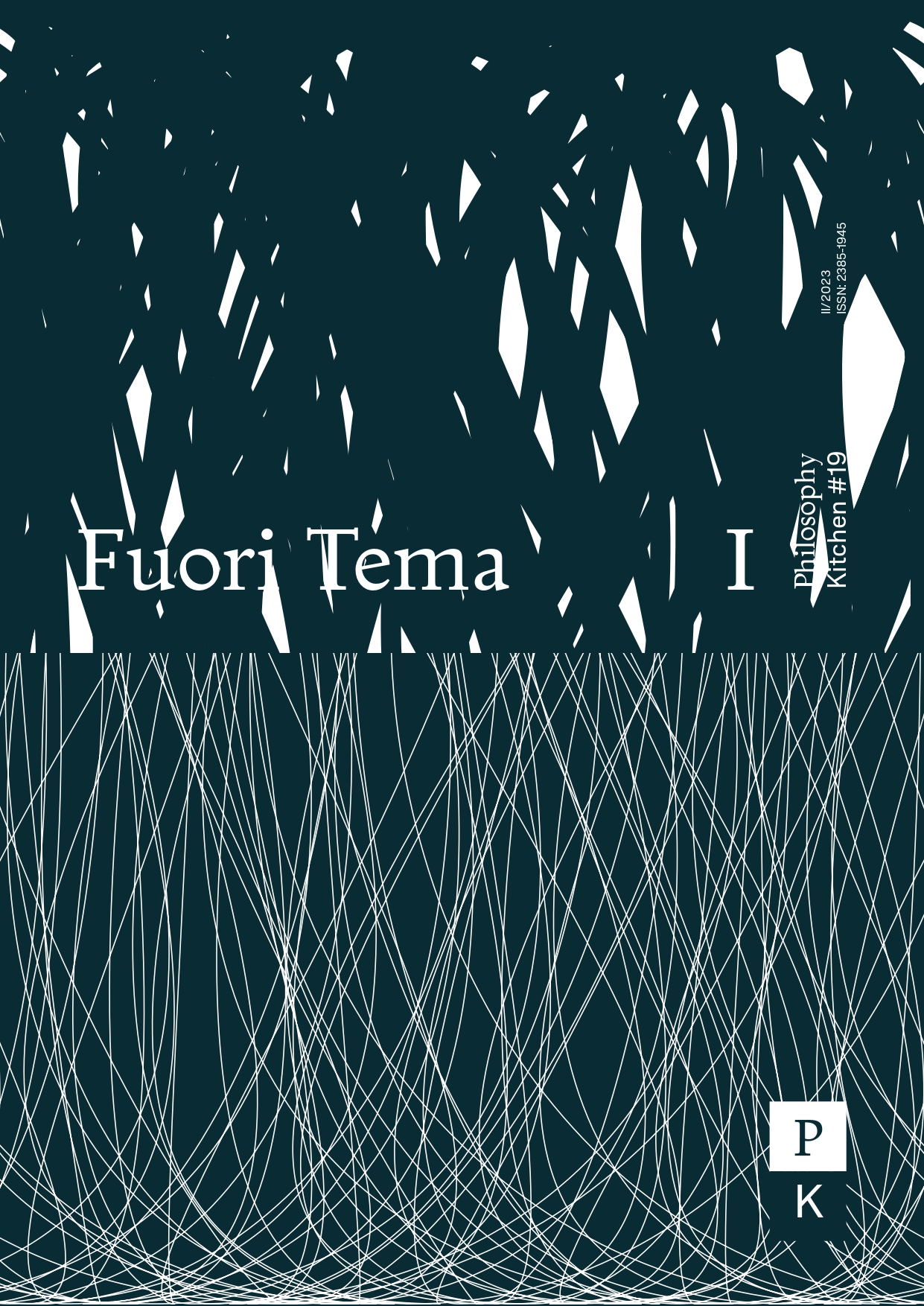Interference. Cultures, Otherness, Translations
DOI:
https://doi.org/10.13135/2385-1945/9379Abstract
In this era everything or almost everything is considered a “cultural” phenomenon. But the definition of culture has become increasingly elusive, complex, subject to peculiar interpretative practices. In order to think about the complexity of this phenomenon, it can be fruitful to develop new concepts as theoretical tools. One can be the notion of interference, understood as a movement, dynamism, or a “game” that convenes and relates distinct, but not separate elements and produces plural forms of subjectivity. Each particular form of interference is a “process of processes”, not of substances. It is structural to every human dimension: it is a sort of transcendental condition - every culture or subject is determined by dynamics of interference - but it declines empirically, historically, taking on specific traits and nuances. Cultures can therefore be understood as spaces for the manifestation of interference. By observing and highlighting some political, philosophical, literary, aesthetic phenomena of cultural interference - one can grasp cultures precisely as places of identity, projections, desires, struggles and never neutral negotiations in which we live, think, or change. We can therefore highlight the active, dynamic character of every cultural reality, without hypostatizing it into an immutable fact. The practices of exchange, clash, thought and shaping of experience, the interferences that are continually renewed do not respond to any specific need for linear progress, but favor oblique movements, variety and multiplicity over uniqueness or monodirectionality – as in the “game of the world” which was indicated by Heraclitus or Nietzsche and in the Indian context was called līlā.





